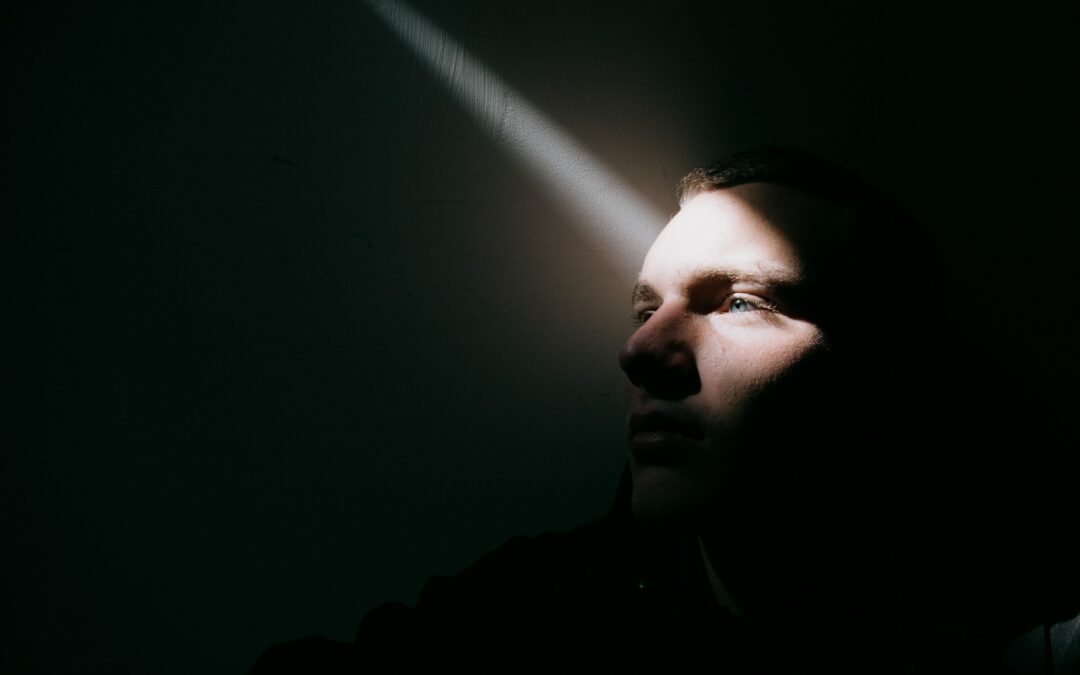For most of his life, Forrest has been searching for freedom. It’s been a long, exhausting and destructive search, but it finally ended in prison where he found true freedom in Jesus.
Growing up, Forrest’s mom owned a surf shop and introduced him to church at a young age. Bullied for his trust in Jesus, he quit going to church. The beach became his place of worship. “Surfing became our church and my connection to God,” Forrest said. “As the days went by, I became more lost and caught up in the devil’s snares.”
Drugs and alcohol took over his life, and Forrest ended up in a mental hospital. “I was a delusional, drunken, adulterous sluggard,” he says.
Empty, he spent the next years in and out of prison, hospitals and rehab. He tried writing songs, practicing Native American spirituality and traditions, embracing the “druggy lifestyle,” feebly attempting sobriety, and even later trying to be a “church guy.”
He tried to find anything that would give his life significance. “I spent blood, sweat, and tears in the trades trying to learn my way into having the skills to buy my spiritual and physical liberation, literally to buy my happiness.”
Coming up empty in his search for meaning, Forrest did the only thing he could think of – run.
“So, I ran . . . I ran from my problems, my friends, my old life, my legal leash,” he said. Forrest ran all the way to Hawaii and found himself in jail within three months.
When he got out of jail, he thought he had found what he had been looking for—happiness.
He got engaged and found part-time work. He “bought” the physical liberation he’d dreamed of, living in a van with his fiancé.
“I surfed when the waves were good, ate good food, explored the island in her van, and just kicked back on our own time like a couple of hippies in serious style,” Forrest remembers. But the longer this lifestyle went on, the emptier he became. “The reason?” he asks. “I didn’t have Christ.”
Dreaming beyond the van life, Forrest turned to the phone book for potential jobs. Finding a list of opportunities he’d made before jail, he called the first number on the list. A man named Tim picked up.
He ended up at Tim’s place a few days later, removing concrete from old fence posts, trimming trees, raking leaves and drooling over the boat parked next to his house. Tim seemed like a guy he could get along with: “I thought I had just hit the jackpot: job, friend, friend who’s got a boat to go catch Ahi Tuna.” And, Tim was a surfer as well.
Tim was also a Christian. The two became friends, fishing and surfing together. Tim would pray for their trips, play worship music, talk to Forrest about the Lord and invited him to Bible studied and church retreats. “I could tell he was fired up for Jesus,” Forrest said, “and it kinda scared me.”
Referencing the parable of the mustard seed, Forrest says, Tim planted the seed of faith in his heart. Forrest went to some Bible studies and men’s campouts, but unfortunately, he couldn’t open his mind to God. He started to resent Tim.
Forrest longed for more, and his life started to fall apart. He relapsed, seeking happiness in the same places that had already failed him in the past. He lost the will to live, and under the influence, he showed up on Tim’s doorstep angry over some fish that Tim owed him. He got violent, destroyed parts of Tim’s home and said things he regrets.
He landed in prison once again. There, he finally let the seed Tim had planted grow. “Now sitting in a prison cell,” Forrest says, “I contemplate the Lord’s glory and receive a renewing of mind.” Forrest has dedicated himself to Christ and is relearning what is truly important in life. He has enrolled in Crossroads and is enjoying the life-giving Bible studies and encouragement he receives from mentors.
Though he’s physically captive, he has finally found the spiritual liberation he’s sought for so long.
“Today I am free,” he says, “free, even behind bars!”
New believers in prison, like Forrest, need guidance and encouragement. You can come alongside people in prison by becoming a Crossroads mentor.


